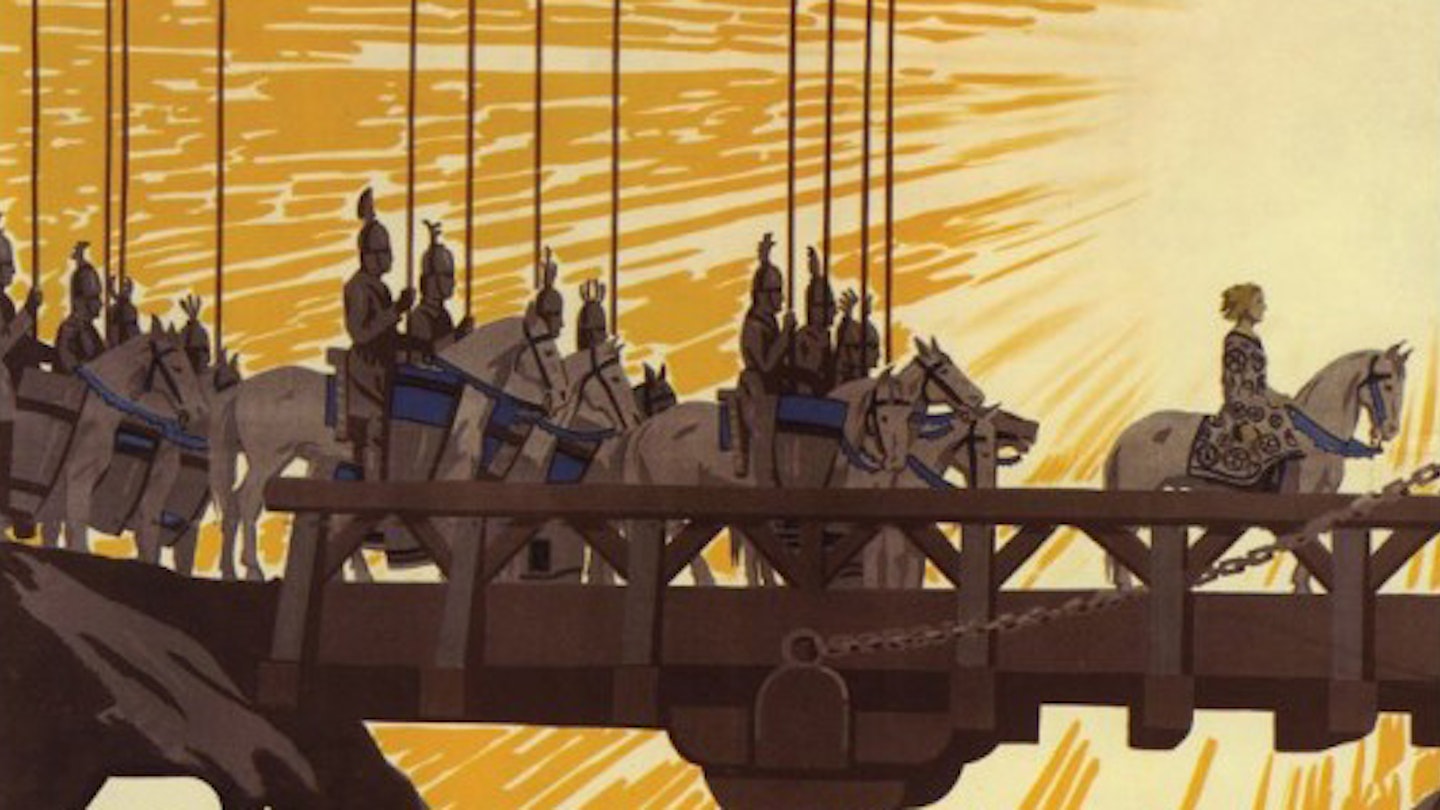Long, and not quite fairly, seen as something of a dark blot on Fritz Lang's CV, his epic silent film Die Nibelungen has begun to see its reputation restored in recent years. Now, finally, there's a restored print of the film to go along with it, as Eureka's Masters of Cinema series is about to release the film on DVD and Blu-ray, in its full two-part, five hour glory, for the first time ever in the UK.
Das Nibelungenlied is an epic poem composed sometime in the twelfth or thirteenth century. The first half involves Siegfried, a pure-hearted adventurer intent on wooing the king of Burgundy's daughter Kriemhild. He slays a dragon, kills a dwarf king, gets hold of a cloak of invisibility and steals a lot of treasure. There's also an ill-advised erotic adventure with the Icelandic warrior queen Brunhilde.
The second half sees the dastardly Lord Hagen stealing Siegfried's treasure, which prompts Kriemhild to marry Atilla the Hun in a revenge plot that climaxes in jaw-dropping carnage.
It's a cornerstone of German culture, probably most famously adapted into Wagner's Ring Cycle, and Lang embarked on the project in 1922 as an attempt to celebrate the country and bolster its flagging pride during its bleak post-WWI period. The lavish spectacle didn't immediately find favour however. It had a disastrous premiere during which the control-freak Lang was still editing the later reels even as the earlier ones were actually playing, while many critics were uncomfortable both with its overt patriotism - some said jingoism - and with its violence.
With depressing inevitability, the film was later championed by the Nazis as "a film of German loyalty." Goebbels praised it in a speech in 1933. Crucially though, its ultimate collapse into violent chaos and nihilism didn't fit the Nazi ideology at all, meaning that during this period the film was only ever shown in incomplete form: the inconvenient second half was witheld from the public. Lang hated the shortened version, and he hated the anti-semitic Wagner, so was understandbly miffed when the version released in the US was not only cut, but used Wagner's opera as the score. Lang fled Germany in 1934, first for Paris and then Hollywood.
Lang was forced to defend the film until the end of his life. In one of his final interviews in the 1970s, he told The Village Voice, "When I made my films I always followed my imagination. By making the Siegfried legend into a film, I wanted to show that Germany was searching for an ideal in her past, even during the horrible time after the First World War in which the picture was made. To counteract the pessimistic spirit of the time I wanted to film this great legend so that Germany could draw inspiration from her epic past, not... as a looking forward to the rise of a political figure like Hitler or something stupid of that sort. I was dealing with Germany's legendary heritage - just as in Metropolis, I was looking at Germany in the future."
Patrick McGilligan, in his biography of Lang, calls Die Nibelungen "One of the breathtaking wonders of the silent screen... [conveying] with tremendous power the inbred stench of nobility, the suffocating embrace of family, the impossibility of love and marriage... and the inexorability... with which the first guilt entails the last atonement."
The restored two-disc Masters Of Cinema edition, including an hour-long documentary, is out in the UK on October 29. By way of a trailer, there's an impressive dragon-slaying clip online{
